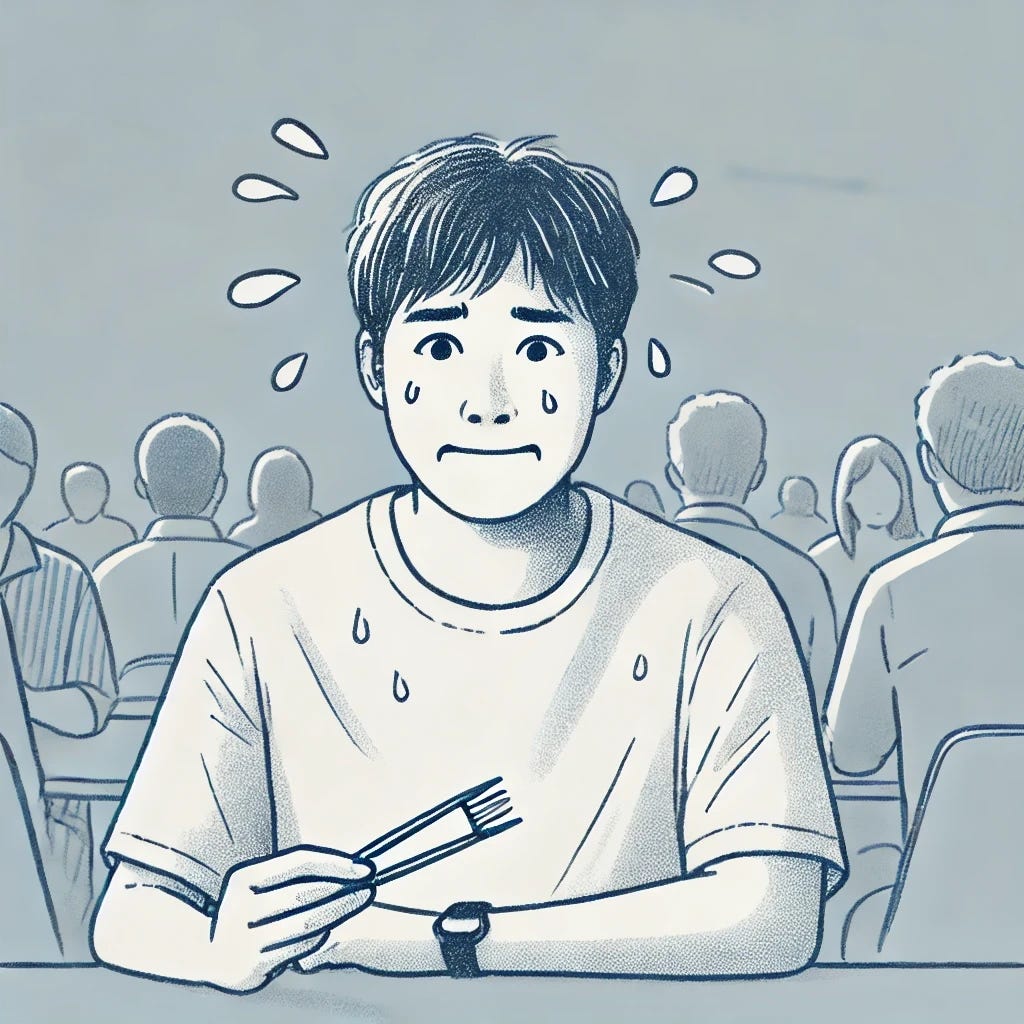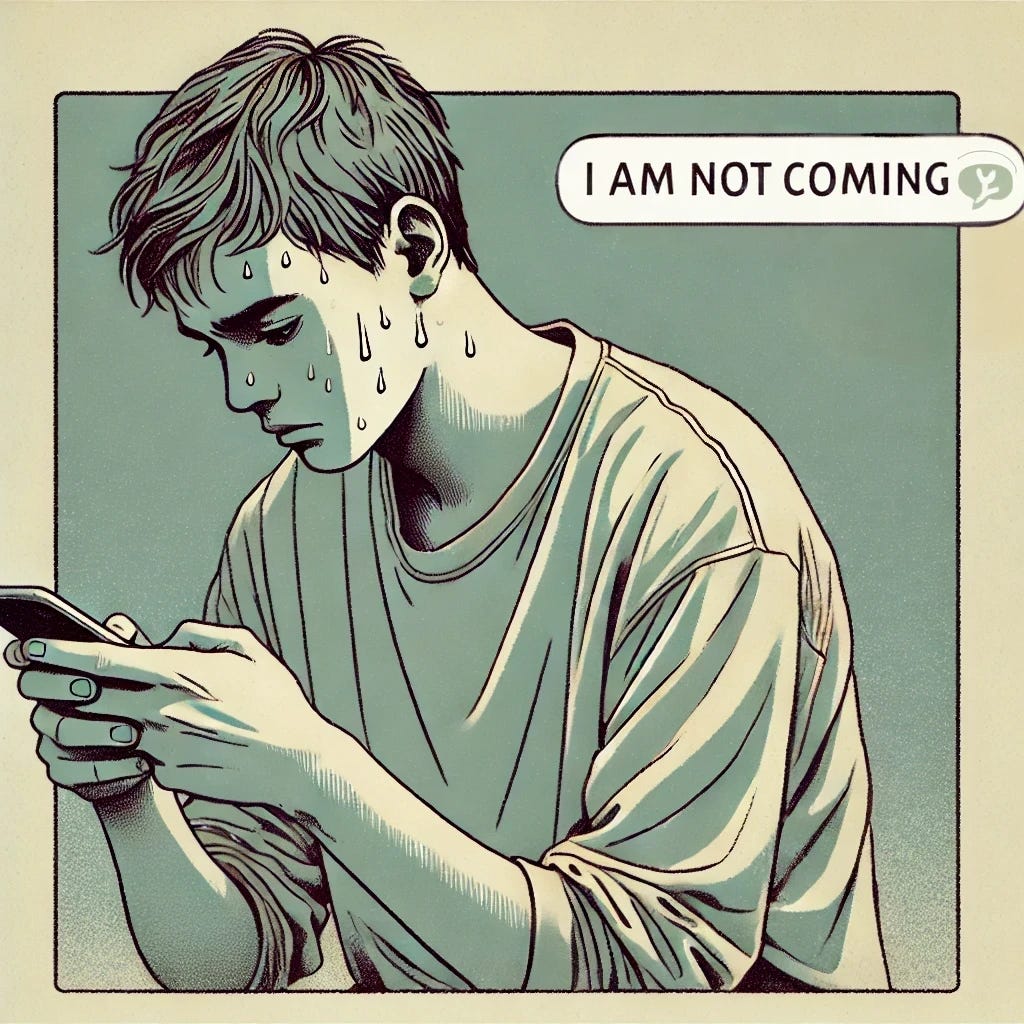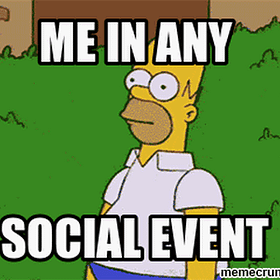How Eating Disorders Influence Friendships
Eating disorders are much more than just a pursuit of thinness. They are a complex illness of the mind that not only affects your body but also impacts many different areas of your life. This includes your friendships and how you show up in them.
1) Diet Talk & Shame
When you develop an eating disorder, the thoughts of dieting, food, exercise, and your weight can start to take over your entire life. You may find yourself spending a lot of mental energy thinking about what you’ll eat, how much you need to exercise, or what others think about your body. As your life begins to revolve around these thoughts, you may find yourself constantly trying out new diets or exercise routines. And eventually, they may even become all you talk about when you meet up with friends.
You might start noticing that most of what you talk about revolves around food or weight, and maybe your friends notice it too. Maybe they ask you to stop bringing it up. That moment of realization can bring on a wave of shame, especially when you promise yourself (and them) that this is the last time you’ll ever make food or weight the center of your conversations. But the next week, you find yourself caught in the same cycle, telling your friends about a new diet or workout plan that will finally make everything better.
Over time, your friends might get frustrated, bored or annoyed. They may not want to keep engaging in constant diet talk. For some of them, these conversations might even be triggering, exacerbate their own struggles with food or body image. This can lead to distance, emotional or physical, as your friends may start pulling away or avoiding the topic altogether. And that distance? It only adds to the shame and makes you feel more isolated, which perpetuates your eating disorder.
2) Feeling "different" from friends
When you’re deeply entrenched in your eating disorder, it can feel like you’re living in a completely different world from your friends—a world filled with food worries and body image struggles. Even though you’re surrounded by supportive people, you might look at your friends and think, “They go through their lives without any of these worries.” While maybe your friends are focused on other things - like their careers, relationships, hobbies - you feel stuck, maybe even superficial for caring so much about your body. This can make you feel different from them, like the “odd one out.”
It’s hard for someone who hasn’t experienced an eating disorder to truly understand what you’re going through, and this lack of understanding might make you feel even more isolated. It’s as if there is an invisible barrier between you and them.
The feeling of being different can show up physically, too. You may look at your friends and think, “I look different than they do”. Whether you feel bigger, smaller or just different, your body never seems to measure up in your own mind. You might also tell yourself “I can’t eat like them”, believing that your metabolism is different or that your body cannot handle the same foods. These thoughts lead to more comparison, more isolation, and the sense that you’re not just different—you’re alone.
3) Constant Comparison
Struggling with an eating disorder can sometimes make you walk around with an internal voice in your head that constantly and unintentionally compares you to your friends, both body-wise and diet-wise. There’s a part of you that knows this comparison feels weird and “wrong,” especially because you don’t view your friends as competition. But at the same time, you can’t help it. And somehow, you never seem to come out of this comparison feeling better. You may notice that your friends are thinner, eating less food, avoiding carbs or sugar, or that they have thinner legs or flatter stomachs than you. It feels like an endless battle, one that you can never win, leaving you feeling exhausted and defeated.
4) Obsessing over what friends eat
When you are around your friends, you might pay extreme attention on what they are eating - how much, how often, and what kinds of food decisions they make. You can’t help but compare your diet to theirs, constantly trying to make sure you are eating less or slower or choosing the “healthier” option. It’s mentally draining to keep track of not only your own food choices but also your friends’! And this hyper-vigilance leaves you feeling exhausted and overwhelmed, so you might start avoiding them altogether. Instead of enjoying meals with people you care about, the worry of being around food can feel like too much. So, you withdraw, avoiding gatherings where food might be a focal point. This only deepens the isolation, reinforcing the belief that it’s easier to stay away than to deal with the stress.
5) Sudden changes in mood
Living with an eating disorder makes your mood unpredictable. A day that starts out with you feeling good can take a turn if you have a bad body image moment that turns into a bad body image day. Or you might wake up feeling like you can handle the day, but one unplanned or “off” food choice can send you into a spiral.
This emotional rollercoaster can make socializing difficult, as you might feel social and engaged one moment, only to shut down and withdraw the next. This might confuse your friends over your drastic mood shifts, which can create distance in your friendships.
6) Being indecisive about where to go
Whether alone or with friends, eating out can be incredibly challenging when you are struggling with an eating disorder. You may find yourself obsessing over where to eat, checking menus beforehand to see if foods there fit with your diet. This indecisiveness can create tension with your friends, who may find it difficult to understand why it’s so hard for you to make the decision about where to eat. It seems such a spontaneous and simple decision to others, but to you, it is a decision loaded with anxiety.
As a result, you might avoid going to events where food is involved, as it feels easier to cancel plans than to face the discomfort. Over time, this avoidance can make you feel unwanted or like a burden to your friends due to seeming picky, adding another layer to feelings of isolation.
7) Absence from events
As an eating disorder starts taking up more space in your life, yo may cancel plans because of food or the way you feel about your body that day. Maybe you don’t want to face the anxiety of eating in front of others, or perhaps you don’t want to be perceived that day. Over time, being absent from social gatherings may cause you and your friends to drift apart. They might stop inviting you thinking you aren’t interested, or you may feel too disconnected to join even when they do ask.
Social isolation is one of the factors that maintain your eating disorder.
Interested in how social isolation perpetuates eating disorders? Read my blog post about operant conditioning:
How My Eating Disorder Made Me Lonely
Social isolation is commonly seen in eating disorders and it is one of the maintaining factors of the disorder. You may ask ‘But why? How are they related?’. I believe the answer lies in operant conditioning.
Socializing is crucial in eating disorder recovery. You are not alone, if your relationships are getting affected by your eating disorder. It may be difficult, but share your worries with a friend that you can trust. Explain them what you are going through and ask for support to get professional help.
Thank you for your time, dear reader! If you would like me to write a blog post with tips on breaking this cycle and practical ways to show up in your friendships while struggling with an eating disorder, let me know by leaving a comment below or replying to this post! I’d be happy to share strategies to help you navigate these challenges.
🌱I give online and in-person (Leiden, the Netherlands) therapy and counselling sessions for eating disorders, body image struggles and more. Send me a message via realisticbodytherapist.com







Thank you! Love learning from you 🙏🏼